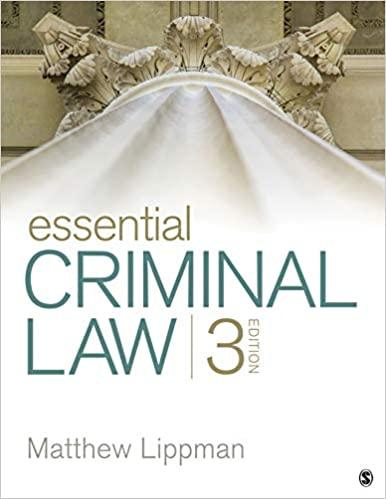Question
A tanker, the Probo Koala, operated by an oil trading company based in the Netherlands, attempted to off-load 250 tons of petrochemical products in the
A tanker, the Probo Koala, operated by an oil trading company based in the Netherlands, attempted to off-load 250 tons of petrochemical products in the Amsterdam port. The oil trading company indicated that the waste consisted of "regular slops," wash water from a ship's holds, which is normally laced with oil, gas, caustic soda, and other chemicals.
When port workers started pumping out the tanker, they realized the liquid in the ship's hold was not the kind the port usually acceptsit was thicker than normal and smelled especially foul. The workers believed the waste was hazardous and did not want to pump it out or handle it in any way.
After researching the ship and investigating what might be in the ship's hold, the Amsterdam port operator decided that it was not safe to dispose of the waste at the port for the agreed price. The new price, which included safe disposal, was going to be around $300,000 more than originally agreed.
The oil trading company declined and decided to move on with the ship to off-load the hold contents at an as yet undetermined location.*
Should the United States be concerned about situations such as these? Why or why not? Do the U.S. laws that you learned about reach situations like these? Should they?
Step by Step Solution
There are 3 Steps involved in it
Step: 1

Get Instant Access to Expert-Tailored Solutions
See step-by-step solutions with expert insights and AI powered tools for academic success
Step: 2

Step: 3

Ace Your Homework with AI
Get the answers you need in no time with our AI-driven, step-by-step assistance
Get Started


